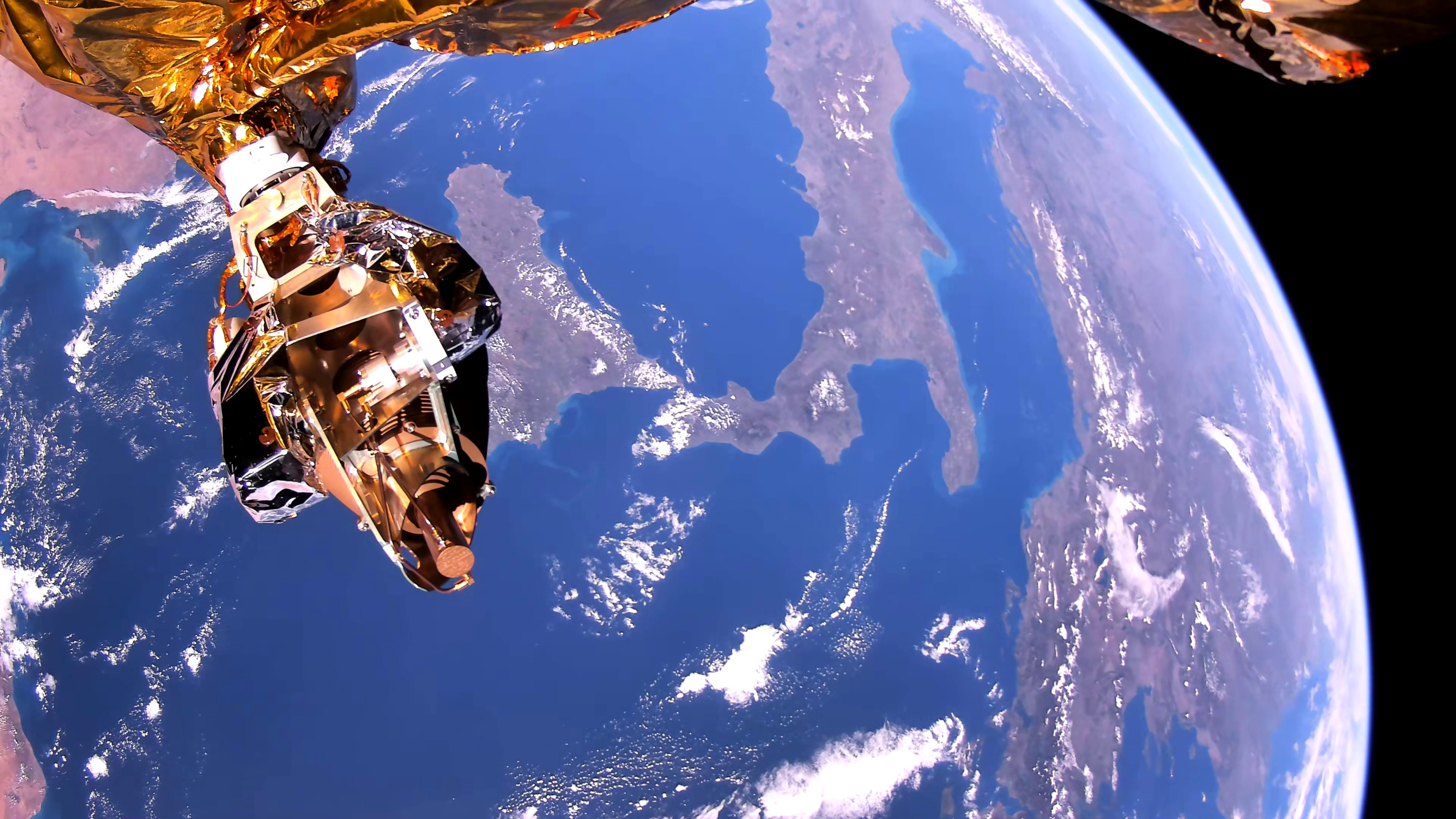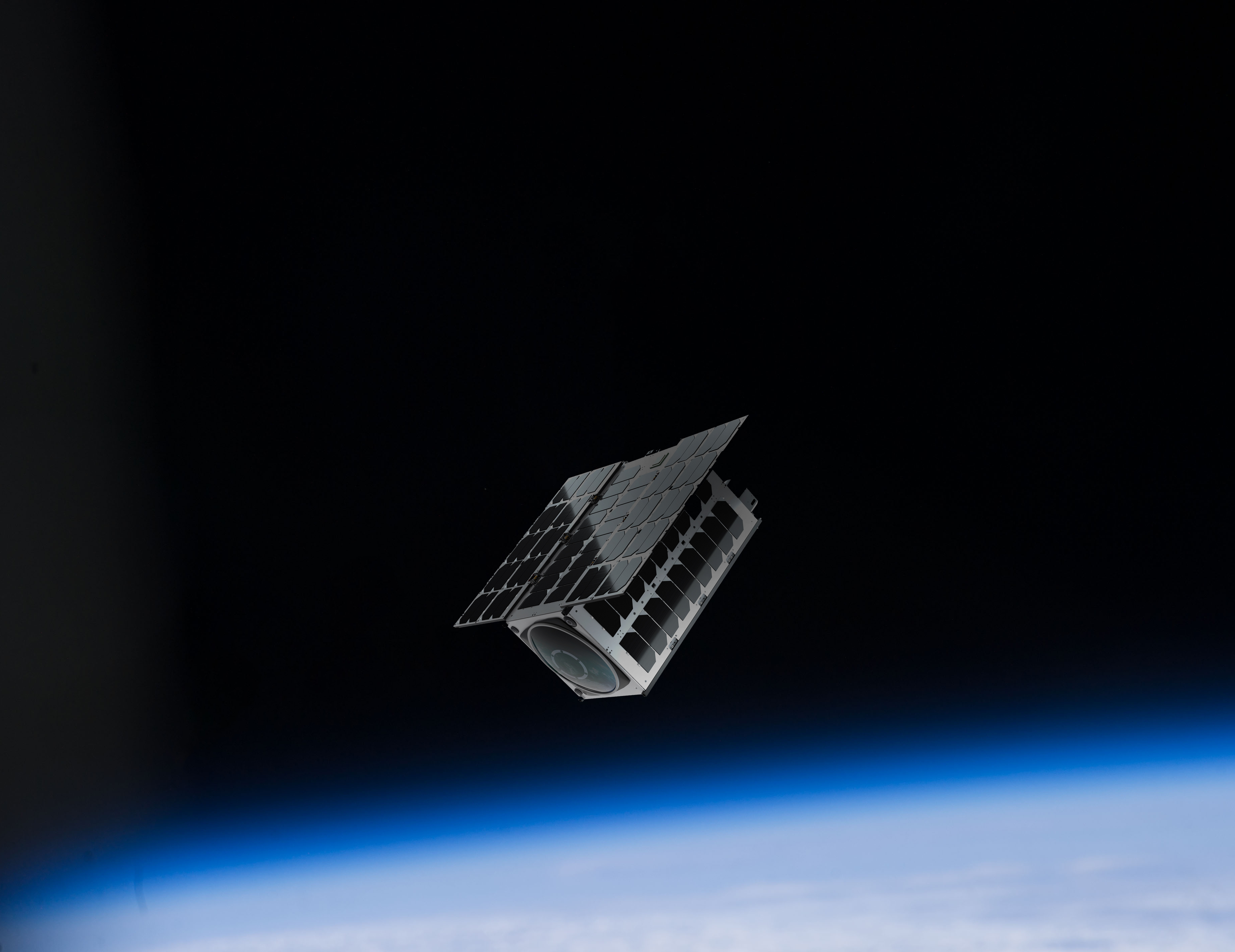
We now know how Sen's first Earth-casting satellite will get to its orbital perch.
Sen, a British company that plans to provide ultra-high definition (UHD) video of Earth to the masses, has signed a deal with California-based Momentus to get its first "EarthTV" satellite aloft in the summer of 2021.
Under the contract, the little satellite will launch with Momentus' Vigoride space tug atop a SpaceX Falcon 9 rocket. The tug will haul the EarthTV craft from its dropoff orbit to its final destination, a sun-synchronous path that flies over our planet's poles.
Related: The top 10 views of Earth from space
EarthTV and space tugs

And this arrangement will likely not be a one-off: the contract includes an option to loft four more satellites using the Falcon 9 and Vigoride during a single launch in late 2022.
"Our EarthTV constellation of nanosatellites will stream real-time videos from space to smart phones so that everyone can enjoy the unique perspectives of Earth from space," Sen founder and CEO Charles Black said in a statement. (Each EarthTV craft is a 16U cubesat built by the company NanoAvionics. The "U" stands for "unit," which in the cubesat world refers to a box that's 4 inches, or 10 centimeters, on a side.)
"We are delighted to be working with Momentus for our launch requirements, because we share a vision to democratize space for the benefit of humanity," Black said. "Momentus' launch services are flexible and very attractive for nanosatellite constellations."
Get the Space.com Newsletter
Breaking space news, the latest updates on rocket launches, skywatching events and more!
Those services involve efficient in-space transportation, achieved via water-plasma propulsion and other proprietary technologies that Momentus has developed. The company launched a prototype space tug called El Camino Real in July 2019, and Vigoride will get off the ground for the first time soon as well: The vehicle is scheduled to launch atop a Falcon 9 on a test mission in December of this year.
Vigoride isn't the end of the line for Momentus, however. The company is developing other space tugs as well, including one called Ardoride that will be capable of hauling satellites from low Earth orbit to the moon.
The overview effect
Sen also has an ambitious vision. The company aims to bring the "overview effect" to billions of people, helping to foster a greater concern for the environment and a greater appreciation of the ties that bind all of humanity.
"Our videos from space will be informative, educational and hopefully inspire global change and a sense of hope that humanity can build a better future, both on Earth and beyond as we become a multi-world democracy," Black told Space.com via email.
"We will be streaming real-time videos covering major environmental and human news stories, as well as empowering people to browse and search the world, monitor civilization and major planetary changes — with the whole world in your hand!" he said.
Sen will start by building out its EarthTV constellation of 100 or so satellites in low Earth orbit. Over the longer haul, the company aims to put camera-toting craft higher above our planet and in orbit around the moon and other bodies.
The summer 2021 mission won't mark the first time Sen has put hardware into space. In February 2019, six of the company's UHD cameras reached orbit aboard a satellite built by Russian company RSC Energia.
- NASA's best Earth-from-space photos by astronauts (gallery)
- 'Hello, is this planet Earth?': Amazing Earth views by Tim Peake
- Relativity Space to launch satellite 'tugs' on 3D-printed rocket
Mike Wall is the author of "Out There" (Grand Central Publishing, 2018; illustrated by Karl Tate), a book about the search for alien life. Follow him on Twitter @michaeldwall. Follow us on Twitter @Spacedotcom or Facebook.
OFFER: Save 45% on 'All About Space' 'How it Works' and 'All About History'!
For a limited time, you can take out a digital subscription to any of our best-selling science magazines for just $2.38 per month, or 45% off the standard price for the first three months.
Join our Space Forums to keep talking space on the latest missions, night sky and more! And if you have a news tip, correction or comment, let us know at: community@space.com.

Michael Wall is a Senior Space Writer with Space.com and joined the team in 2010. He primarily covers exoplanets, spaceflight and military space, but has been known to dabble in the space art beat. His book about the search for alien life, "Out There," was published on Nov. 13, 2018. Before becoming a science writer, Michael worked as a herpetologist and wildlife biologist. He has a Ph.D. in evolutionary biology from the University of Sydney, Australia, a bachelor's degree from the University of Arizona, and a graduate certificate in science writing from the University of California, Santa Cruz. To find out what his latest project is, you can follow Michael on Twitter.
-
Eva Braun Great Britain does not have its own infrastructure for launching spacecraft and conducting scientific experiments. There is no manned space program in the UK, however, the country already has some commercial space companies producing different satellites, launch vehicles, and space tug company thus allowing the country to enter into the space race.Reply










